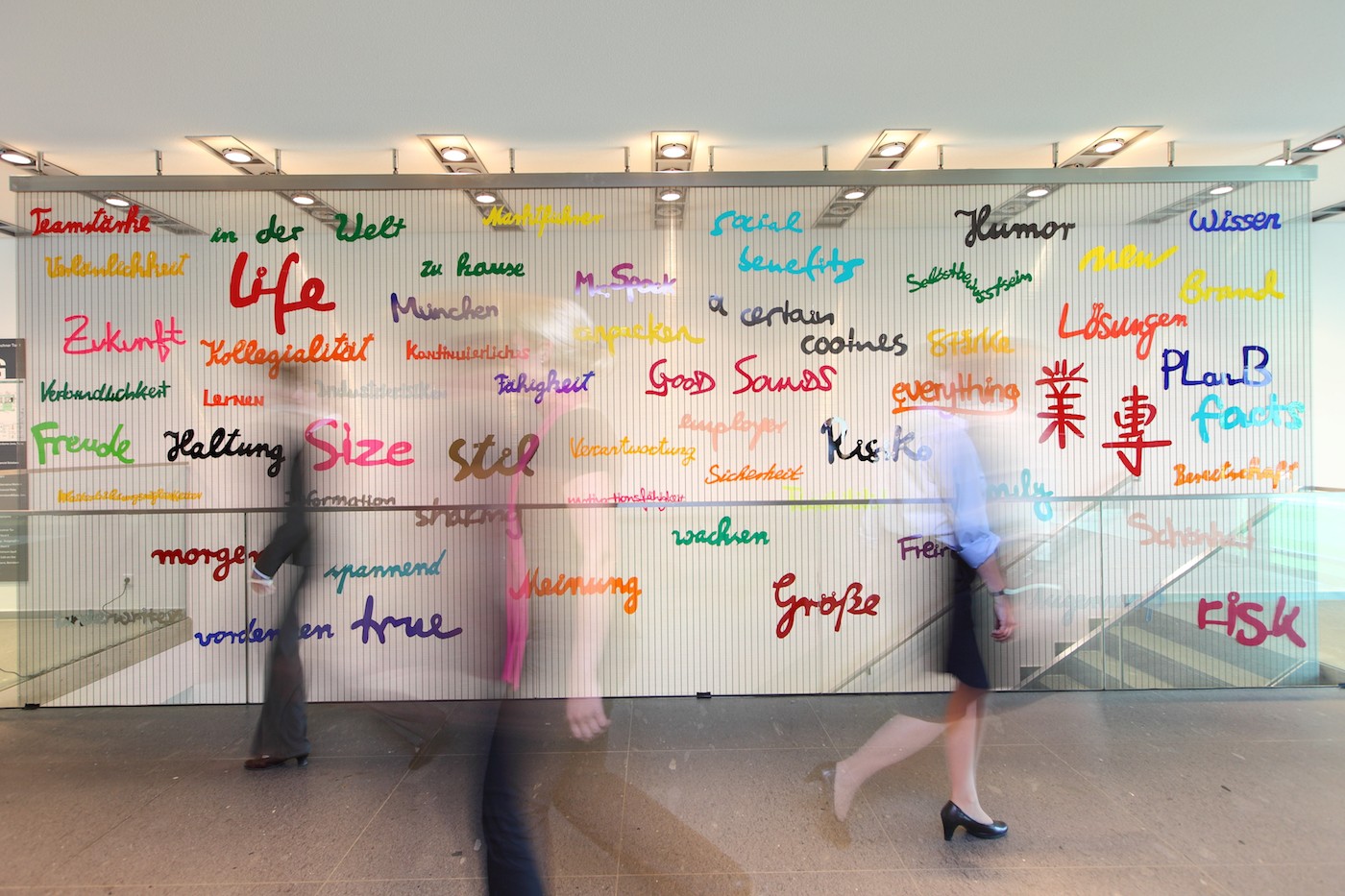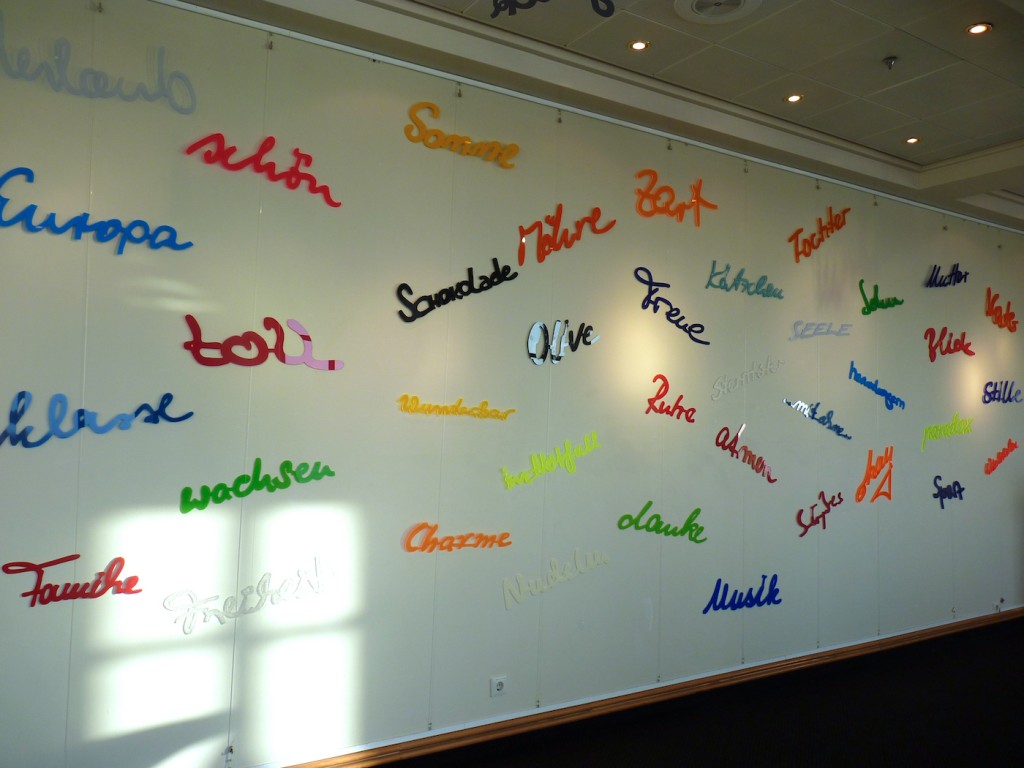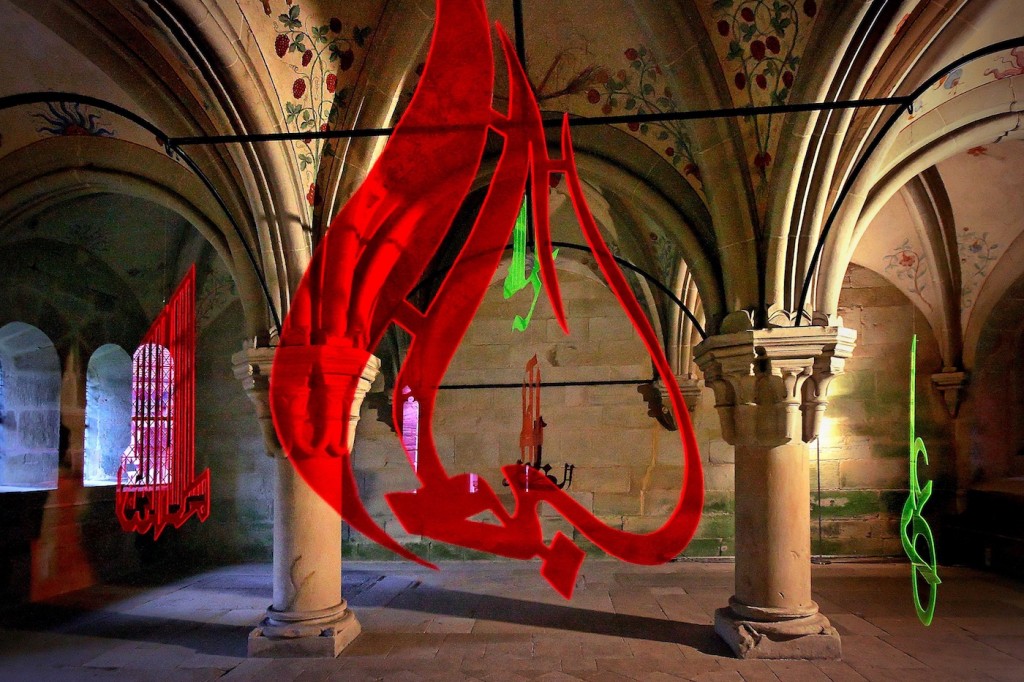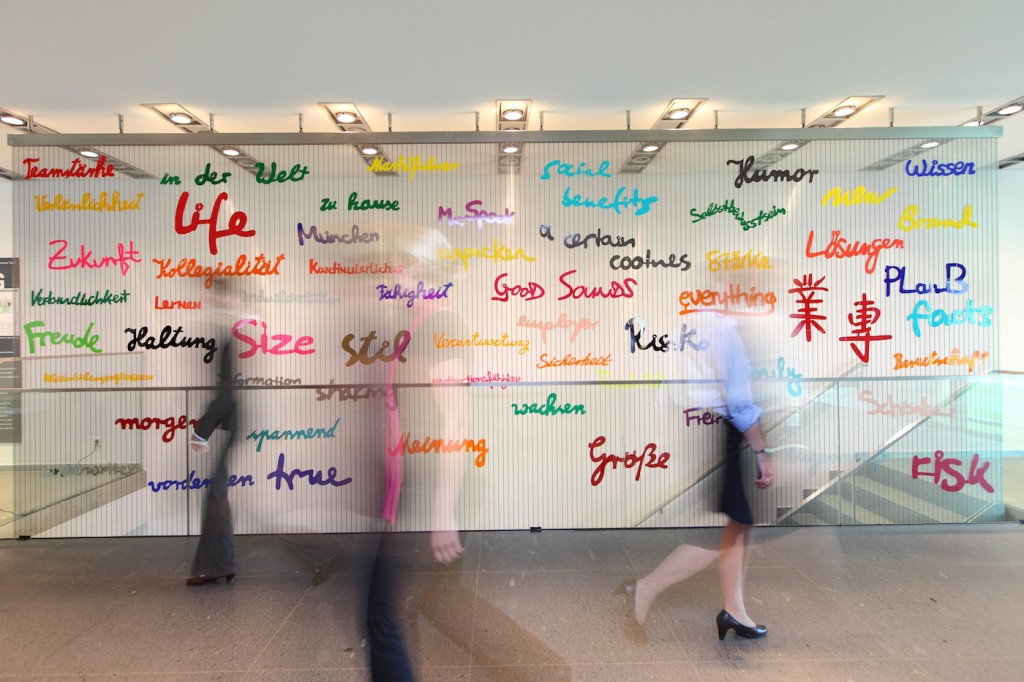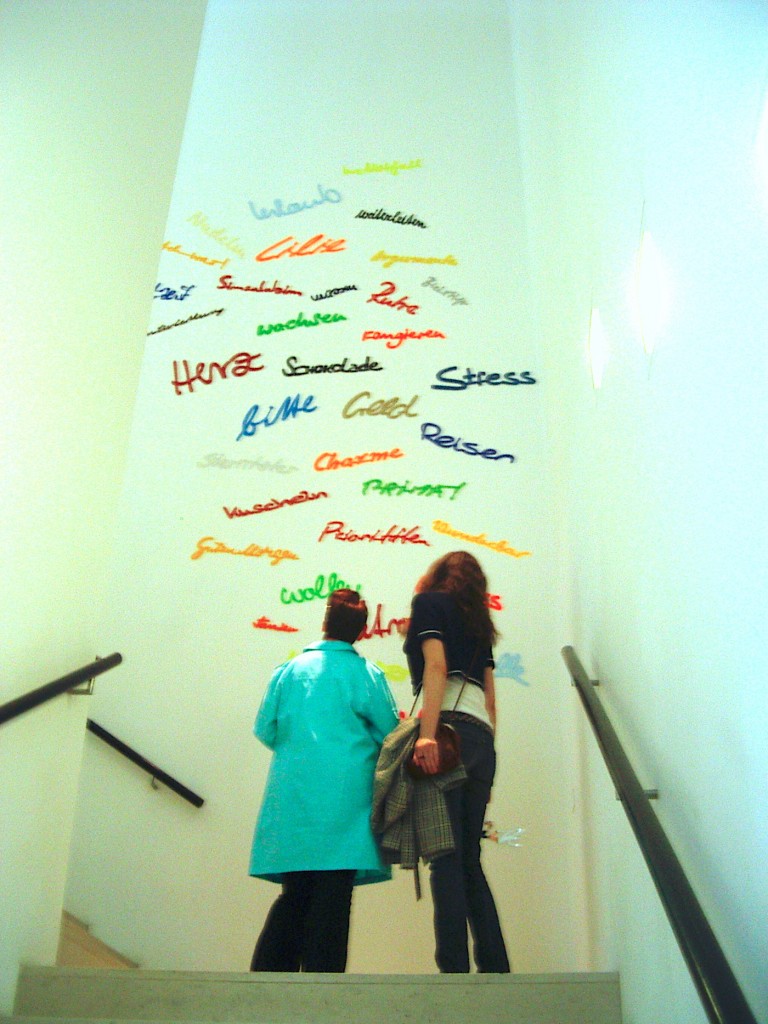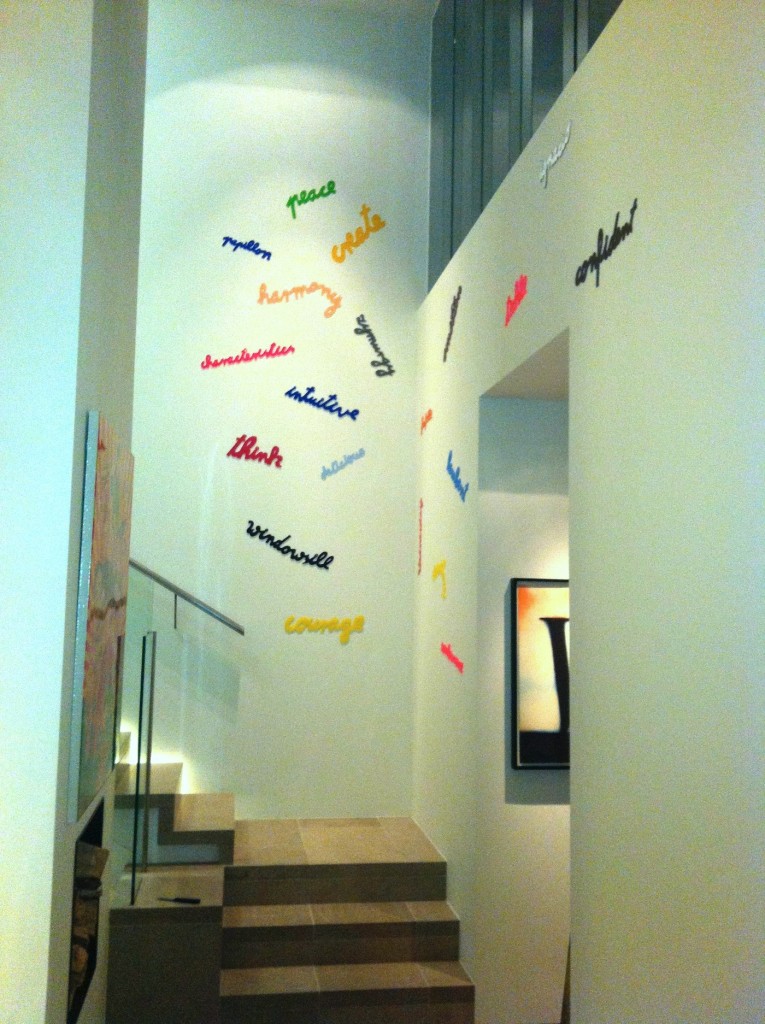Rupprecht Matthies
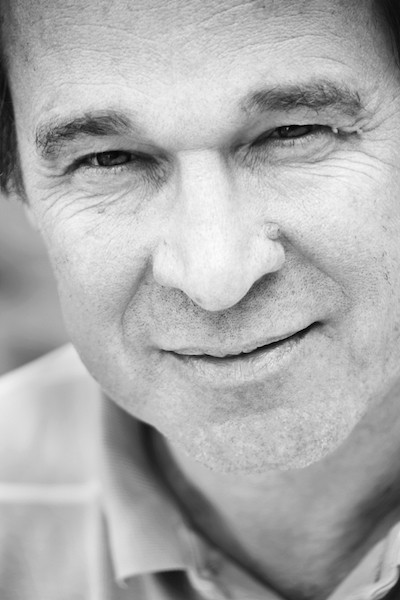
Beba Lindhorst
Rupprecht Matthies
The art of Rupprecht Matthies incites an alert awakening, it sounds a wake-up signal, it invites open communication full of possibilities, it assimilates meetings, places and situations. And, it poses questions: How much opinion is permitted? How much freedom is ventured? How friendly may we be in a world, where critical analysis is so much to the fore? And what does being friendly really mean? And why is finding a positive access to places, situations and people often understood as being uncritical? Exposing one’s own personality, one’s knowledge is akin to walking a tightrope, an act that constitutes life and often makes it so hard.
Rupprecht Matthies’ word creations, his installations and, most of all, his texts are deeply personal. They reflect not only the author’s personality, but the personalities of people he has met during his researches and his observant encounters with all levels of society. The terms, that Matthies discovers, are very simple and yet demonstrate a remarkable perception of situations that need clarification. Words meet signs in different ways, all taken from everyday life. We find ourselves in gardens, in the drab, prefab buildings of the German city of Neuruppin, in federal state offices and, last but not least, in museums and galleries. The stage may be a public place but also a private domain. Art occurs in places, where it is usually not displayed and its effect is all the more striking. And all this with an informality that gives it such an impact.
These encounters are also confrontations. Rupprecht Matthies chooses concepts to suit situations and that touch a raw nerve. Address, confront, demand, react – what does a specific situation require? How can people be encouraged to think independently? Where do they pay attention to art? Which paintings move us and trigger a chain of associations? In his works we find pictures and words – respectively especially word-pictures – which we think we already know, but which we have to learn to see differently. And often not what we think we see, conditioned by social convention. Each term, each picture impresses in different ways. A “laugh” suddenly becomes something very special, because we perceive the true meaning of the word. The “smiley” in emails and texting so easily obscures, it is quickly written and often meaningless. But “laugh”, put as a challenge in a public space seems almost subversive. Rupprecht Matthies examines the world with a journalistic, dissecting precision and reveals quite daringly fresh insights about society, especially the art scene. What he does is actually tabu. Addressing the game of power, status and conventions with this directness is just not done. It may seem to evolve from the naivity of a man, who simply doesn´t understand the rules of the game. But fortunately there are sometimes people, who don´t stick to the rules, because they don´t want to play. It´s fascinating, how Matthies has developed a straightforward, visual-poetic language of his own, that at once pleases and portrays uncomfortable truths. He addresses the elementary needs of men and forges alliances with his surroundings. One cannot but face up to it. "Renounce" and "decide", "everything" and "hate", "Allah" and "tolerance" – these terms sum up very basic questions of our society. Sometimes it takes only one word to trigger a chain of thought, which then may be continued endlessly. And then you´re in, in a conversation, a debate and ultimately in life around you.
Art helps us transcend our limits. Like our reflection in a mirror, that urges us to intervene, to see clearly and to change. But to what extent is our society willing to show itself? Is the present verifiable? Art often triggers simple, subtle shifts in reality, as Matthies puts it. Do high expectations not lead in the end to eschewing comment or to the disappearance of art? That never occurs in Matthies´ works. A predominant feature of his artistic production is visibility; it´s the manifestation of an artist who is not averse to venting his opinions. The experimental juxtaposition of very different work complexes in this book demonstrate this and invite us to a tour de force through the contradictions, that inevitably appear in this context and cannot be resolved.
Thought is only possible about the configured, as the philosopher Ludwig Wittgenstein remarked, not about "configuration" itself, independent of the configured, logical facts. Wittgenstein wrote in his "Tractatus Logico-Philosophicus": "Propositions cannot represent logical form: it is mirrored in them. What finds its reflection in language, language cannot represent. What expresses itself in language, we cannot express by means of language. Propositions show the logical form of reality. They display it." As Wittgenstein says, the same things can be connected in different ways und therefor generate different facts. As Wittgenstein describes his world in propositions, so does Matthies use words to describe his. The motto is: “Don´t be so romantic!” Matthies may oppose romanticisms that are seemingly opportune again today and are seen as an escape into parallel worlds. But if you consider the cultural-historical background of this movement, which takes the social status quo into account and challenges it, he is nearer to it.
- Bettina Steinbrügge, Director of the Mudam in Luxembourg
Rupprecht Matthies is born in Hamburg, Germany in 1959. He lives and works in Hamburg and Berlin.
1980 – 1986 studies at the University of Fine Arts of Hamburg in Hamburg.
EXHIBITIONS
2020“Bright Days ahead”, group show, Galerie Commeter
2019“Bright Days ahead”, group show, Galerie Commeter
2018“Bright Days ahead”, group show, Galerie Commeter
2017“Bright Days ahead”, group show, Persiehl & Heine
